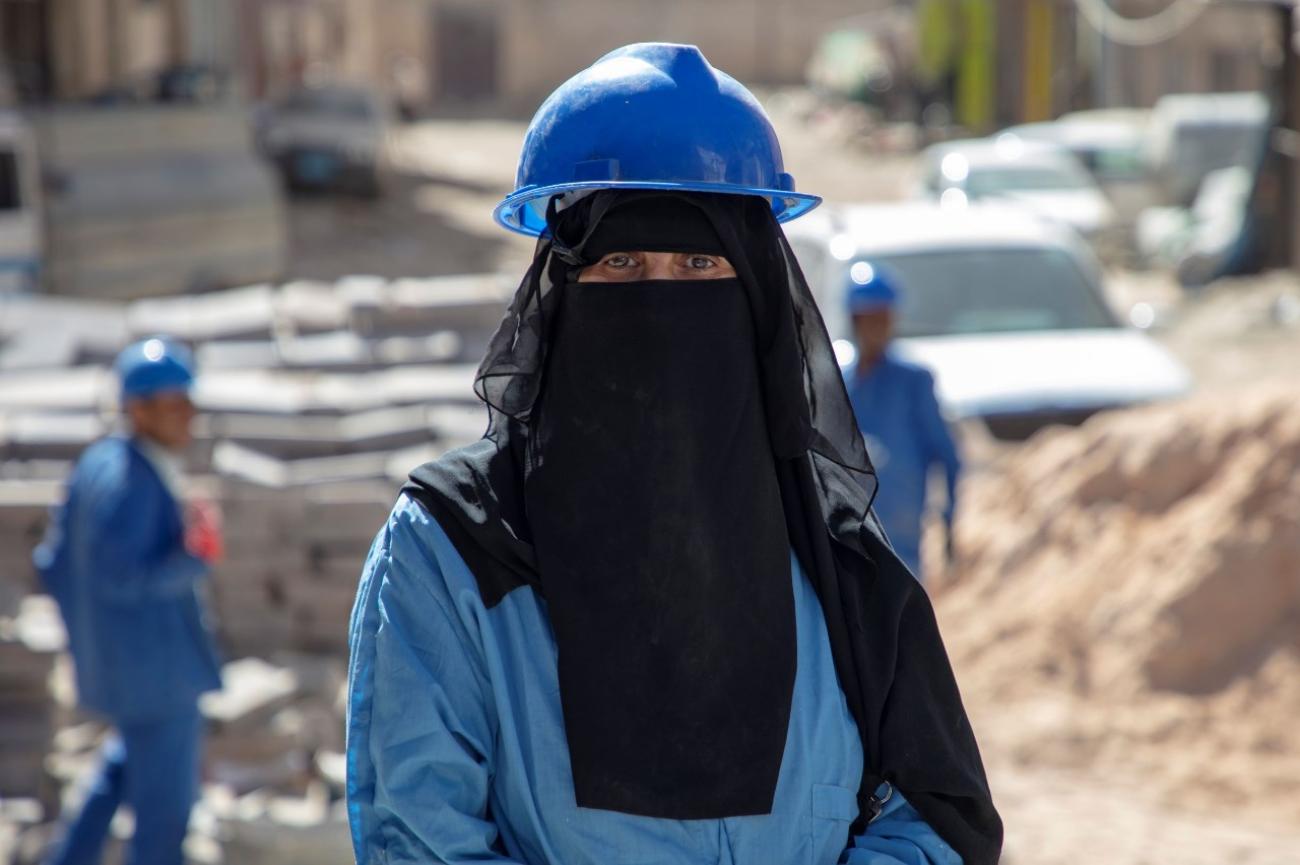Searching for a place to call home

Since 2015, the war in Yemen has taken a heavy toll, forcing many to make difficult decisions to either flee their homes or stay and face uncertainty.
Since 2015, the war in Yemen has taken a heavy toll – forcing many to make difficult decisions to either flee their homes and face the risks of displacement or stay and face uncertainty, possibly even death.
It was under these conditions that Amna Ahmed fled her home in Taiz, taking nothing with her but her seven children.
“We experienced death that night.”
They were living in Bir Basha, an area of Taiz that experienced some of the greatest horrors of the war and was among those areas that were hardest hit. Some nights, the family had to sleep in the hallways of their home to avoid being struck by stray bullets or shells. One especially memorable night, their bathroom ceiling collapsed due to heavy shelling in the area.
Soon after that night, the family set out to Ma’bar, where they stayed for three months before fleeing to Sana’a. Sharing a small home with their relatives in the city, the children often fought for blankets and space to sleep through the night, only to awaken in the morning to search for food.
Maria, Amna’s daughter who dreams of becoming a doctor to help her fellow Yemenis and to contribute to the country’s development, misses for her friends and longs to return to their family home in Taiz. Remembering a very special moment with her classmates before she fled, Maria commented: “They promised to send me the photo, and I wish I had it to see my classmates again.”
Now permanently residing in Sana’a, Amna’s children range in age from 7 to 19 years old. But adapting to their new life has been difficult – including enrolling in school and cobbling together supplies – which are shared among the children.
The impact of the war has also not escaped Amna’s husband. Over time, Amna’s husband became abusive with Amna, forcing the family to leave their home. He was imprisoned, but after three months Amna withdrew the charges against him, sympathizing with his mental state.
To earn money to care for her family, Amna worked long days as a cleaner. “One day while I was carrying heavy stones, I suddenly fainted and nearly hit my head on the sidewalk. Some very kind people pulled me from the street, brought me cake and juice to recover. I went straight back to work.”
Most Yemenis no longer receive monthly salaries or cash subsidies
Since arriving to Sana’a, the family has not received any social assistance, despite Amna’s efforts to apply for welfare and to charities. “I couldn’t get the assistance provided by humanitarian organizations to internally displaced people because they think that I’m a resident of Sana’a. They asked me to return to Taiz to get an ID, but it’s impossible for me to return given the situation.”
Desperate, Amna sold her last piece of jewelry to buy goods to sell in the street to make money to pay rent. “I’m concerned about my daughters. I don’t want them to sleep in shops or on the streets.”
Food insecure, the family longs for the days in Taiz when they could buy whatever they wanted. Now, Amna is adept at rationing, explaining “I divide a can of beans over three meals and add a lot of water so that we can all eat. I haven’t eaten since yesterday afternoon. But I did have a can of juice that I got from my colleague at the Cash-for-work project.”
Cash-for-work project
Amna’s situation has improved dramatically since joining the cash-for-work project that is being implemented by the Social Fund for Development (SFD) in partnership with UNDP. Through hard work, Amna believes the ability to work for the project is an opportunity to escape from the hunger and thirst she and her family have become used to. Because of her diligence and dedication to work, she has been able to afford food, educational supplies and furniture for the family’s home.
Through UNDP and our partners, cash-for-work and small-scale community infrastructure rehabilitation are leading to improved incomes and livelihoods for vulnerable Yemenis – particularly women and youth. This is part of the World Bank supported Yemen Emergency Crisis Response Project (YECRP) that aims to mitigate the impact of the Yemeni crisis on local households and communities, assisting in their recovery from the bottom-up through short-term employment, reviving the local private sector, and restoring key service delivery through small-scale infrastructure.
344,550 people (28% female) provided with income-earning work to help cover their basic needs
“Without SFD giving me an opportunity to work in this project, my family and I would have suffered from severe malnutrition,” says Amna. Now caught between the memories of the past, the reality of their current situation, and the hope for a better tomorrow, Amna and her children carry on – trusting that her gained experience in the UNDP/SFD cash-for-work project will help them to overcome their suffering until the war finally comes to an end.
***
Funded and supported by the World Bank, the Yemen Emergency Crisis Response Project (YECRP) is implemented by UNDP in partnership with the Social Fund for Development (SFD) and the Public Works Project (PWP). The US$300 million project provides economic stimuli in the form of large cash-for-work projects, support to small businesses, and labor-intensive repairs of socio-economic assets, benefiting vulnerable local households and communities across Yemen.






